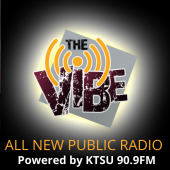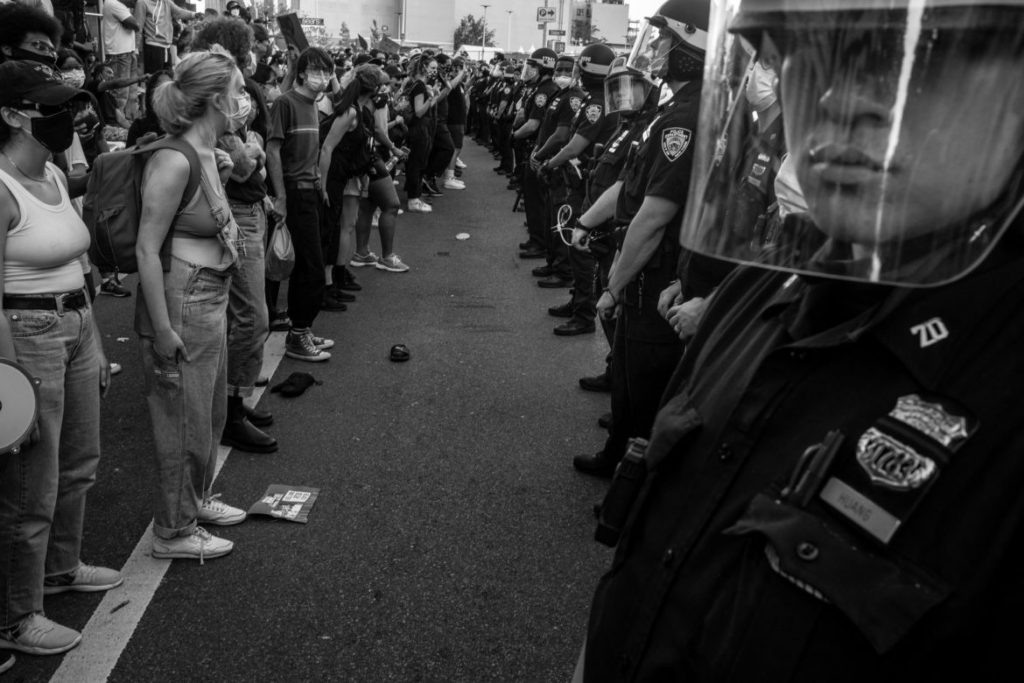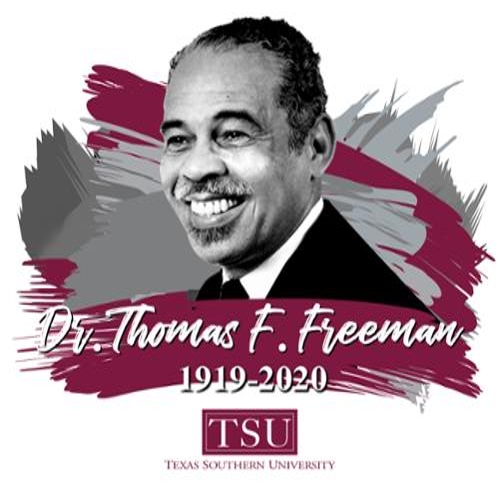Month: June 2020
In the wake of George Floyd’s tragic death and the resulting national outcry for systemic policing reforms, Texas Southern University’s Center for Justice Research (CJR) has formed a National Police Reform Advisory Group. The expert-laden advisory group will help chart the national response for the sustainable improvement of police-community relations. “We have an opportunity to be at the forefront in the shift in American policing,” said Dr. Howard Henderson, founding director of CJR, which formed in 2018 as a nonpartisan research center devoted to data-driven solutions for an equitable criminal justice system. “Out of the unprecedented support for change, we have found a lack of solution-oriented approaches to police-community relations. As such, the creation of the National Police Reform Advisory Group brings together nationally-recognized experts with prior police and criminal justice field experience.” Henderson said members of the advisory group have experience in police training at the international, federal, state and local levels. The group will ultimately help shape the future of police reform by: –Assisting with the strategic research and program approach to police reform–Serving as technical advisors on police reform efforts, research protocols and policy developments–Providing advice to police administrators, mayors, and other government officials on research and development sponsored and/or conducted in the name of police reform. hrough the Center for Justice Research, the advisory group will provide evidence-supported recommendations of the existing police reform recommendations and put forth any necessary additions. The group will advise on the initial police reform policy and practice needs assessment and the continued activity of the national and local police reform movement. The group’s overall objectives and the suggested path forward will be agreed to by its members, ultimately benefiting from the collective knowledge, skills and abilities of its credentialed members. For updates on status of Police Reform Advisory Group, visit https://centerforjusticeresearch.org/advisory-group/. Quotes from National Police Reform Advisory Group members: “As our elected officials and criminal justice leaders begin the tough work on criminal justice policy reform to address the historic and perpetual, unjust and unfair treatment of communities of color, it is imperative that they be provided with sound advice grounded in research evidence and lived experiences,” said Paul Elam, Ph.D., chief strategy officer with MPHI. “Many of our policy efforts have failed because we have not placed the people who are most impacted at the center of conversations which seek to find solutions to problems affecting them. This advisory group will be comprised of doctorally prepared, national experts who have years of experience working in communities where structural racism has negatively impacted the life outcomes of many black and brown residents. The advisory group will use a culturally responsive and racial equity lens emphasizes that emphasizes the powerful impact of inter-institutional dynamics, institutional dynamics, institutional resources inequities and historical legacies on racial inequalities in our current criminal justice system.” “Because of the continued tumult between the police and the community, a think tank (research group) that examines policing from the perspective of the community, particularly communities of color, is essential to get at the root cause of the problem,” said Lorenzo M. Boyd, Ph.D., assistant provost for diversity and inclusion and director of the Center for Advanced Policing, University of New Haven and former president of the Academy of Criminal Justice Sciences. “This multidisciplinary, multi-perspective approach will address not just the outcomes from police community relations, but we will delve into the underlying problems to address and view police training from a proactive, community-based lens.” “The Advisory Group has been established to serve as an assemblage of intellectuals to facilitate the orchestration of policy changes in police and criminal justice reform,” said Ronald Craig, Ph.D., assistant professor of criminal justice and criminology at Tennessee State University. “Further the group is solution orientated in the implementation of change in this unprecedented time in American history.” “This advisory group is a response to a legacy of police violence that has heightened the current pain in the Black community. As such, we must continue to work diligently to challenge anti-Black racism in all forms so that George Floyd’s death and the countless others won’t be in vain,” said David Baker, Ph.D., interim chair of the Administration of Justice department at Texas Southern University. “This country has reached a boiling point with many of its police departments and their relationship with the community, particularly the African American community,” said K.B. Turner, Ph.D., department chair of the Department of Criminology and Criminal Justice at the University of Memphis. “Indeed, this country is close to its nadir in the history of American policing. It is (past) time for a reexamination and evaluation of American policing. This includes personnel, police procedures and practices, equipment, and utility of that equipment. This advisory group brings its passion and collective experience to serve as change agents in providing reform to ensure constitutional policing and accountability. The issues that have become so salient in recent weeks demands that this advisory group provide effective leadership at a time where it is missing, but sorely needed.” “It is vital that the voices of those with lived experience have a seat at the table from start to finish,” said Bahiyyah M. Muhammad, Ph.D., assistant professor and Inside Out program administrator with the Department of Sociology and Criminology at Howard University. “Far too often are the voices and actions of the directly impacted heard from the sidelines. This approach is far from acceptable. As the world has come together during this time of grief, swift and democratic action is needed. It is often said, ‘those who are closest to the problem are closest to the solution.’ We are committed to making this a reality. With racist and outdated theories that perpetuate white supremacy, there is only one way forward. That being, through the leadership of Black scholars who have lived experience, community respect and a track record of renown scholarship and service to their own. This will be the only way to advance the movement beyond the hashtag #Blacklivesmatter soundbite that currently dominates
Dr. Thomas F. Freeman, a legend, educational icon, and sage to innumerable students at Texas Southern University, passed away on Saturday, June 6, following a brief illness at age 100. Dr. Freeman celebrated his centennial birthday this past June at TSU. Dr. Freeman was an esteemed debate coach, faculty member, orator and minister at Mount Horem Baptist Church in Houston. He was a revered educator and leader of the award-winning Debate Team at Texas Southern University since his arrival in 1949. Under his leadership, TSU debaters have garnered multiple national and international titles during its existence. “This is, most definitely, a sad day at Texas Southern University,” said TSU Interim President, Kenneth Huewitt. “Dr. Freeman exemplified all that is good about our university. His commitment, first and foremost, to his students, across eight decades of service, is what stands out in my mind as one of his greatest legacies. He offered all that he could in the pursuit of excellence. He expected the best from his students and colleagues, and he knew how to bring it out in everyone around him. Like the stars in the sky, the number of lives he influenced is beyond measure.” Dr. Freeman instructed such iconic national and global figures as Representative Barbara Jordan and Dr. Martin Luther King, Jr., and advised Academy Award winner Denzel Washington in the 2007 movie, The Great Debaters. When Washington was preparing for his role as a debate coach he needed the help of a master in this specialty. After a search for what he called the “best debate coach in the world,” he selected Dr. Freeman to provide that help. With the insights and guidance of Dr. Freeman, Washington and his creative team produced an exhilarating movie masterpiece. The Great Debaters, which earned a Golden Globe “Best Picture” nomination, shone a bright spotlight on the accomplishments of debate teams at Historically Black Colleges and Universities. In 2009, the TSU Board of Regents named the new Honors College after Dr. Freeman, helping to ensure that his legacy would forever inspire scholars at TSU to become leaders in the nation and the world. Prior to his arrival at TSU, Dr. Freeman received a Bachelor of Arts degree from Virginia Union University in Richmond, VA; a Bachelor of Divinity from Andover Newton Theological School in Newton Centre, MA; and a Doctor of Philosophy from the Divinity School of the University of Chicago, IL. He engaged in post-doctoral studies in 1963 at the University of Vienna in Austria, and pursued inter-institutional studies in 1973 at the Universities of Liberia, Lagos, and Ghana, and at Fourah Bay College in West Africa. Dr. Freeman received numerous awards and accolades throughout his career, both before and after his “retirement” from TSU in 2013. Most recently, in 2018 he was the inaugural recipient of Houston Mayor Sylvester Turner’s History Makers Awards–Living Legend. The award pays tribute to outstanding individuals committed to making a difference in Houston through volunteerism, mentorship, advocacy and civic engagement. The same year, the TSU Debate Team received a proclamation from Mayor Sylvester Turner and City Councilman Dwight Boykins in honor of its win at the inaugural HBCU National Speech and Debate Championship Tournament earlier that year. Mayor Turner declared June 19, 2018, as Texas Southern University Debate Team Day. In 2017, Dr. Freeman received the Congressional Black Caucus Foundation’s (CBCF) highest honor in Washington DC. He was presented with The Phoenix Award and recognized for his profound influence on our nation as a legendary educator and prolific scholar. His long-standing commitment to improving the quality of life for African-American students was the basis of the award. Dr. Freeman held numerous academic and administrative positions at TSU, in addition to his ongoing role as professor and debate coach. In 1966-1968, he was an assistant to the dean of the College of Arts and Sciences; 1968-1973, assistant dean of the College of Arts and Sciences; and 1973, dean of the College of Arts and Sciences. He directed TSU’s Weekend College, 1973-1980; the TSU Model Cities Training Center, 1970-1973; and the Potential Unlimited, HUD Youth Involvement Project, 1972-1974. He also served as head of the Philosophy Department from 1949-1959. Other non-TSU academic posts he held locally included a lecturer in the Religion Department at Rice University, 1972-1994; and an adjunct professor of speech at Houston Community College, 1980-1997. Dr. Freeman’s talents as a spiritual guide are respected in the higher education community and the community at large. For almost 70 years, he served as minister of Mt. Horem Baptist Church in Houston, where he provided spiritual guidance since 1951. He served as a professor at Virginia Union University, where he taught Practical Theology; a Stahley Christian Scholar Lecturer at St. Paul’s College in Lawrenceville, VA; minister of Pleasant St. Baptist Church, Westerly, RI; and associate minister of Monumental Baptist Church, Chicago, IL. In 2001, a Houston Mayor’s Proclamation gave recognition to Mt. Horem’s Silver Anniversary and to Freeman’s outstanding civic leadership. Dr. Freeman was recognized internationally for his oratorical skills. He was the keynote speaker for many educational, social, religious, and civic occasions throughout the Houston area and beyond. Dr. Freeman was born in Richmond, Virginia, to Louis and Louise E. Freeman. He is survived by his wife Clarice, who will turn 100 later this year. Together, they raised three children – Thomas F. Jr., Carter, and Carlotta, and have several grandchildren. “My father’s life ended peacefully,” said Dr. Carlotta Freeman, daughter of Dr. Thomas F. Freeman. “Our family prefers to focus on the life he lived. We will announce the arrangements shortly.” Dr. Freeman received many awards during his career, including the Doctor of Humane Letters from Eastern Massachusetts University (1980 and 2000); American Performance Theatre Award (1992); Houston Urban League, Margaret Ross Barnett Leadership Award (1992); TSU’s International Recognition Award (1992); Martin Luther King Drum Major Award (1995); Educator of the Year Award presented by the Black Caucus of the Texas Legislature (1995); Houston Trail Blaze for the Negro Heritage Foundation (2000);
-
Pages




